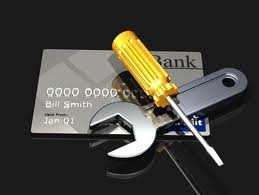Bad things happen to good people and just because you have missed payments or have a bad credit rating does not mean you are a deadbeat. In fact as the author of Credit-Collections.ca I had a great credit score in 2008. An 800 FICO which would get me the best credit at the best interest. But one year later that credit score had fallen to 485. Now, in 2013 at the writing of this article it is 605 and on it’s way up.
So what happened to make someone chose to go from an 800 score to a 485 score? Did I just wake up one day and say I am not paying my debts anymore? Was I living beyond my means? Or did something happen?
If you guessed something happened then you are correct. In my case it was a hit and run driver that derailed my life for over two years, but regardless of who you are and what got you in a credit problem, it’s not permanent and it’s only you that can help you.
More information on how to specifically improve your credit can be found in the forum, but to begin with lets just forget your circumstances and start now to fix the problem.
Steps to begin rebilding your credit history
- Don’t beat yourself up. Regardless of your circumstances bad debt can occur. Don’t worry about the past, learn from it and start new from today.
- Work with your creditors that can be saved. If you have debts that have just become past due or have NOT gone to a collection agency, try to come up with plan with the creditor to save that account.
- Avoid bankrupcy at all costs. Bankrupcy is not the solution unless you have been already been sued through the courts for a significant amount of money that you cannot pay. Most peoples credit issues can be resolved in knowing the laws and with some time.
- If an account has gone to a collection agency and shows on your credit report, do not pay. Paying a collection agency will make the debt worse by extending the statute of limitations and increasing the time a debt is on your credit report. Never just pay a collection agency.
- Learn the laws. Canada and each of it’s provinces have laws on credit collecting and reporting practices. Most many Canadians don’t know about. It’s up to you to be informed and take the steps to help yourself first. Regardless of your circumstances, most creditors and collectors have heard it all and will not help you unless they have to.
How to rebuild your credit history
- Apply for a secured credit card. Secured credit cards require you to leave a deposit with the credit card issuer as a guarantee. The deposit is usually equivalent to the card limit, but can be higher. For instance, if you want a limit of $500, you will be asked to leave a deposit of $500.
- Make at least the minimum payment by the due date. If you cannot pay off your balance in full each month on your secured VISA, make at least the minimum payment on each of your debts on time. Late payments will count against you and negatively impact your credit score and credit report. Always try to keep the credit card at under a 25% balance.
- Be careful of bad credit offers. Bad debt options may seem tempting but many have rediculious interest rates and don’t report good accounts. Many bad credit loan providers are no better than loan sharks. Look for small loan creditors that report good accounts monthly and don’t have hidden contract terms and fees.
- Learn to deal with old debts. Old debts are constantly being sold between creditors and collection agencies who will buy your old debt for pennies on the dollar regardless of how old a debt is. Learn what the statute of limitations is for your province, once that time has passed a collector has no legal recourse to collect unless you admit to the debt. Learn the term “I am disputing the debt” and tell them not to contact you again. Paying an old debt can affect your credit report and reset the SOL.
- Wait. This is often the worst part of credit rebuilding because it will take several years. But knowing your rights and learning how the system works you can make this wait as short as possible. Credit is a commodity that needs to be taken care of.


Recent Comments